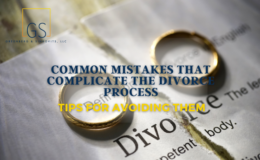Prenuptial agreements, often referred to as “prenups,” have become a common aspect of modern marriages. In particular, the younger generations (Millennials and Gen Z) are embracing the practice. These legal documents are designed to outline the financial rights and responsibilities of each spouse in the event of divorce or the death of one of the parties. While prenuptial agreements are becoming more prevalent, some questions often come up for those individuals considering getting one. We’re here to answer those questions and more. Keep in mind, our answers are based strictly on our experience in the State of Illinois, and you should always consult with an attorney in your jurisdiction.
FAQ #1: Do I Need a Prenuptial Agreement?
People get married every day without a prenup. But—according to the American Psychological Association—40-50% of first marriages and 60-67% of second marriages end in divorce.
Finances and lack of communication are two of the top reasons that lead to divorce. So doing the work now to understand how you and your spouse approach finances and openly discussing your assets, debts, financial goals, and inheritance wishes is an incredible way to start off a marriage.
While prenuptial agreements can benefit all couples, there are a few scenarios in which prenups are highly recommended:
- If one (or both) of you has significant assets or debts: Individuals entering a marriage with substantial assets, property, or debt may benefit from a prenup to clarify what will remain personal property and how debt responsibilities will be handled in the event of a divorce.
- If one of you is a business owner: If you own a business or part of one, a prenup can protect it from becoming a contested asset in a divorce, potentially disrupting its operations, or forcing its sale.
- If there are children from previous relationships: For couples who have children from previous relationships, a prenup can ensure that specific assets are preserved for those children, protecting their inheritance rights.
- If there is an anticipated inheritance: If you expect to receive or have already received a significant inheritance, a prenup can help ensure that these assets remain separate property and are not subject to division in a divorce.
- If one partner is wealthier: If there’s a significant disparity in wealth between partners, a prenup can help manage expectations and protect assets in the event of a separation.
- If one partner is sacrificing their career: If one partner plans to sacrifice their career for the marriage, whether to relocate or care for children, a prenup can provide assurances of support or compensation in the event of a divorce.
- If you’re getting married later in life: Individuals who marry later in life and have accumulated personal assets, retirement funds, or have estate plans in place may want a prenup to protect their financial stability and estate plans.
- If you want clarity: Some couples simply prefer the peace of mind and legal clarity a prenup provides, detailing the management of finances, property, and other responsibilities during the marriage.
FAQ #2: How Do I Tell My Partner I Want a Prenup?
Initiating a conversation about a prenuptial agreement can feel awkward, but it’s essential for open communication. Timing is key, and discussing the matter well in advance of the wedding is advisable. Avoid bringing it up in the midst of wedding preparations or during an emotionally charged moment.
The best prenuptial agreements protect BOTH parties. Approach the conversation with honesty and express your reasons for considering a prenup. Emphasize that it’s about financial transparency and protecting both parties’ interests. Encourage your partner to share their thoughts and concerns as well, creating a collaborative and mutually beneficial discussion.
FAQ #3: Can a Prenuptial Agreement be Invalidated?
Prenuptial agreements are legally binding contracts, and they are “thrown out” in very limited circumstances, such as duress. It is also possible that portions of a prenuptial agreement can be modified – either by agreement, disability by one of the parties, or lack of clarity.
The very best way to ensure that a prenuptial agreement is enforced is to ensure both parties have independent legal representation, provide full financial disclosure, sign the agreement voluntarily without coercion, and enter into the agreement well before the wedding. Failure to do these things could lead to the agreement being invalidated.
In the unfortunate event of a divorce, a well-drafted prenuptial agreement can help avoid lengthy legal battles over the division of assets. It’s crucial to view a prenuptial agreement as a proactive measure rather than a negative prediction about the future of the relationship. By addressing financial matters upfront, couples can strengthen their understanding of each other’s financial values and expectations.
Consulting with a legal professional who can provide personalized advice based on your specific circumstances and the laws of your jurisdiction is always recommended.






